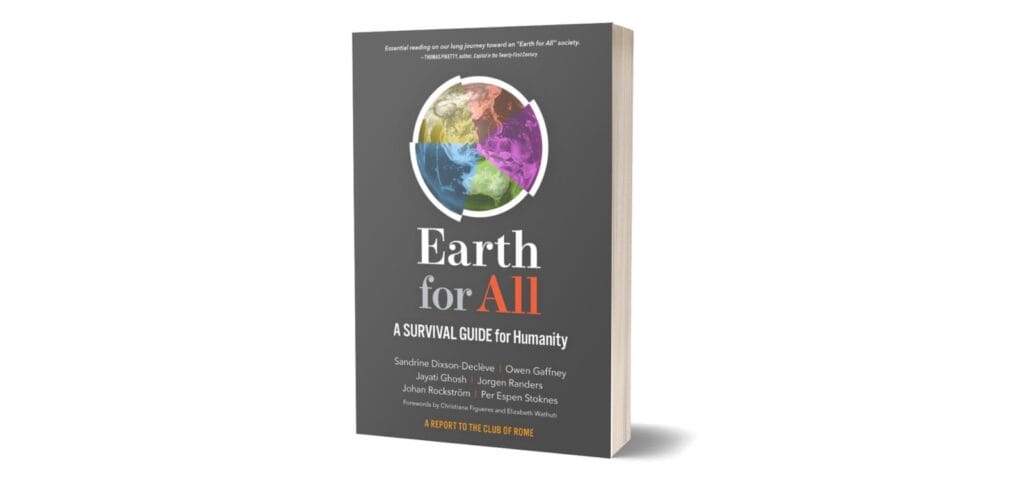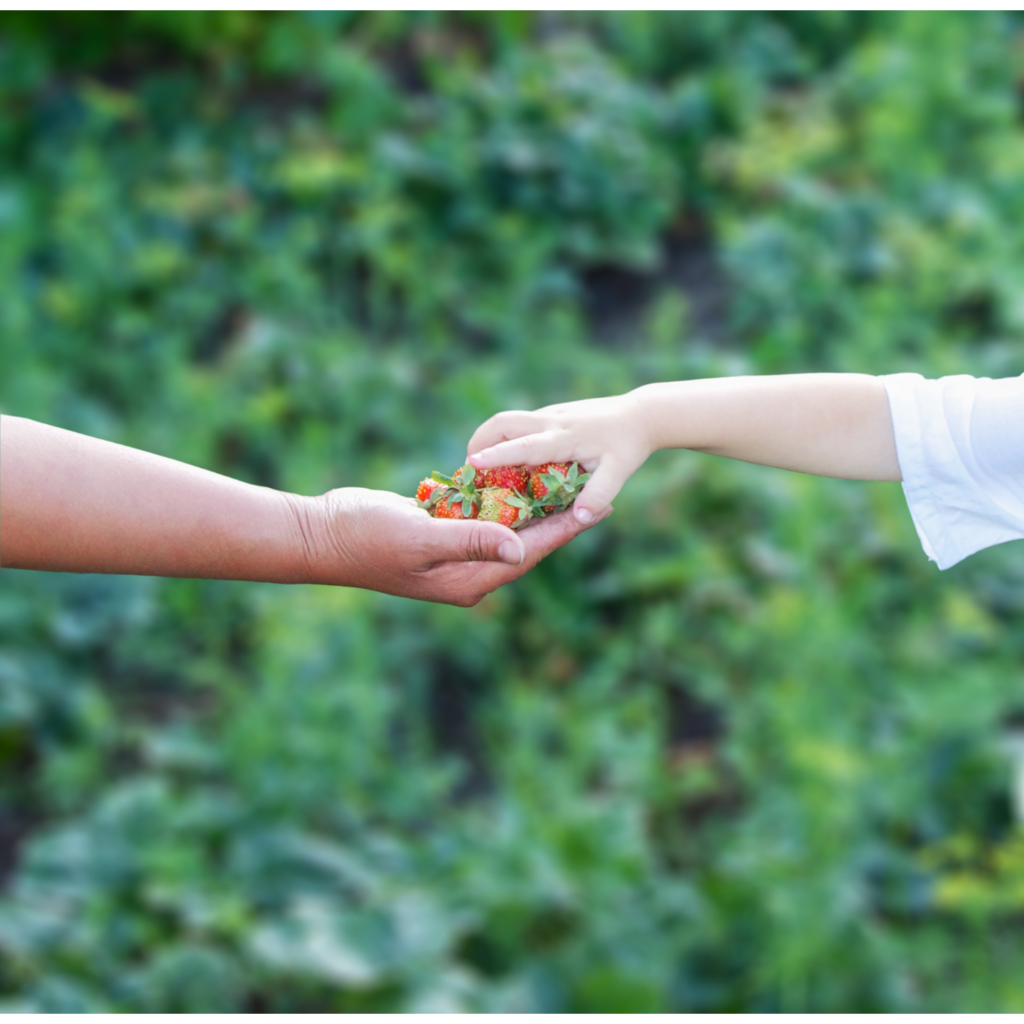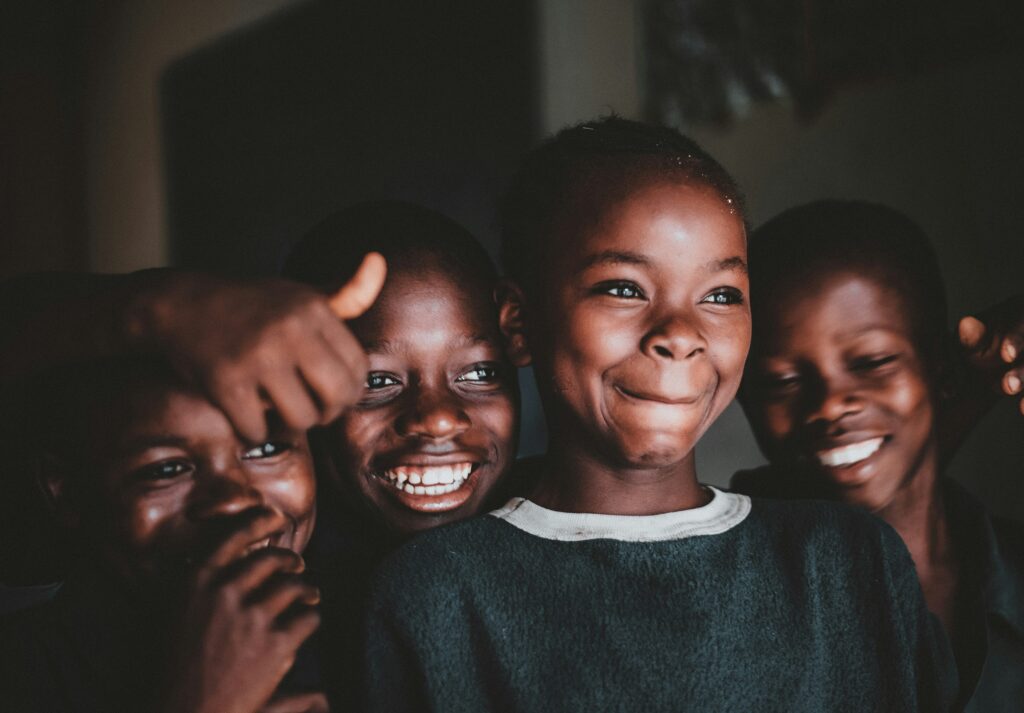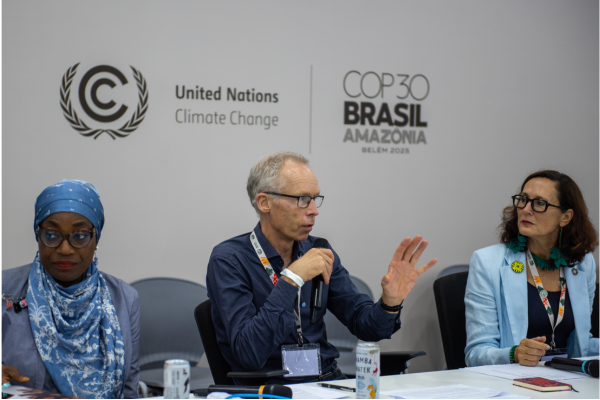It’s common to say that the invisible hand – the market – rewards and punishes. The invisible hand has punished Liz Truss and the British government, throwing the UK into chaos. Even the markets didn’t believe the prime minister’s clueless economic growth strategy. The markets drove the political instability that brought her down. Four weeks can change a nation’s economic policies.
Four weeks ago, we launched Earth4All at the New York Stock Exchange on Wall Street. Our mantra is “From Winner Takes All to Earth for All” so it was certainly symbolic to launch our book at the centre of the universe for the markets. But perhaps it was also an important market signal. The fact we were given centre stage at the NYSE to declare an economic revolution is surely a sign of changing times. Our message was, I hope, clear: unfettered free markets, and directionless economic growth are a road to catastrophe. But markets, as one of the most powerful forces on our planet are also a tool to accelerate directed investment in solutions that work to stabilise the planet and provide wellbeing for all.
In Earth For All: A Survival Guide for Humanity we describe two scenarios: Too Little, Too Late, and the Giant Leap. With our current economic system – including unregulated markets destroying nature and failing people – we’ll speed headlong into the “Too Little Too Late” scenario. The world will lurch from crisis to crisis and never invest in long-term resilience of societies. We transform our energy system but too late to avoid crossing dangerous tipping points. Meanwhile as the century progresses, growing wealth inequality just makes it more difficult to deal with existential risks.
Our Giant Leap presents a different model: we grow what matters – the clean energy revolution, regenerative food systems, circular economies and education and health. And we retire redundant industries – the fossil fuel industry and take-make-waste business models. We optimise our economies for human wellbeing. Changing course needs investment. But the cost is relatively small – potentially just 2-4% of global income. This is less than the cost to deal with the pandemic.
But the markets will not reallocate resources on their own. We need active governments and mission economies. Liz Truss’s growth narrative failed because it lacked substance. Growth happens when you invest in infrastructure, research and innovation, and people – their health and education. This is what we need right now to move on to the Giant Leap.
The initial month’s feedback of Earth4All has been overwhelming, skyrocketing in Germany in the best-seller list, social media buzz and it’s now being passed around governments, leaders, thinkers, doers. We did not create a blueprint for economic system change. But we are clear that the economic system must change to address the challenges of our time. We need it fast. It is possible to rethink our economic system in a way that high-income countries reduce material use and consumption driving greater efficiencies and value, while low-income countries grow and defeat poverty. We need to act on the 5 extraordinary turnarounds described in the book together – at the same time – and move beyond GDP.
Why does Earth For All resonate now?

I believe this (initial) success happened because the book spoke to today’s most important issue: managing the dramatic urgency of the situation – and the anxiety it brings to all of us – with a feasible plan, backed by science – creating space for much-needed hope, which is the real oxygen for action.
We were honoured to receive some powerful endorsements.
One of them has often come to my mind in these days. It’s the words of the 8th Secretary General of the United Nations and father of the SDGs, Ban Ki-moon who hopes Earth4All can inspire “a new movement of minds and souls that are willing to save our precious humanity”.
This is a human challenge that goes at the heart of our deepest values: how do we leave the planet to future generations, what do we value our life, the life of other humans, how much do we value the lands, the waters, the air who have given and give us life, do we respect the other species on this beautiful planet? Can we be good ancestors?
I had the chance few days ago to discuss with faith leaders – how much do we need faith communities in this effort! – exactly the need to build a movement of movements from the ground up, supporting people with the will, and the personal commitment, to save people and the planet. To sustain economic transformation through a recalibration of our societies and create a new balance of humanity, ecology, and economy.
The transformation in front of us is enormous but possible. The more people are on board, the easier it will be.
But let’s be clear. We need action now from governments. Next steps are:
- UNFCCC COP27 – Real climate finance, more ambition towards zero carbon emissions.
- CBD COP15 – A new ambitious framework. Zero nature and biodiversity loss.
- IMF – A reform of IMF (quotas, governance, SDRs) to create policy space for Low-Income countries to eliminate poverty, and fight / adapt to climate change.
- TAX CONVENTION – Move ahead quicky to create a global tax body that would reduce inequality.
I will talk more about it in the coming weeks. Closing bells are symbolic that the day’s trading is over. But time is ticking. We have the tools to emerge from emergency in this decade. Markets and policy-makers must act today, before it is too late.
Join the movement! Sign-up to Earth4All to stay updated on the campaign.
Join the conversation on Twitter



